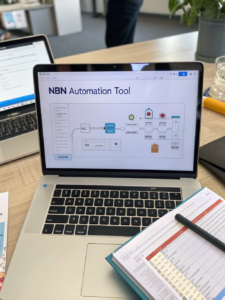Why Quantum Computing Startups Are Attracting Massive VC Investments in 2024
.
Is the Quantum Leap in Computing Ready for Your Portfolio?
The dawn of quantum computing investments is generating significant buzz, but is the hype justified? With promises of revolutionary breakthroughs across industries, many investors are wondering if this is the next major paradigm shift. But navigating the complexities of this nascent field requires a clear understanding of the potential, the risks, and the strategic approaches to consider. Can understanding key concepts propel you towards profitable ventures? This comprehensive guide dives deep into the world of quantum computing investments, exploring the market landscape, lucrative strategies, and potential pitfalls.
Key Concepts & Trends

Quantum computing represents a fundamental change from classical computing. Classical computers use bits to represent information as 0s or 1s. Quantum computers, however, leverage qubits. Qubits can exist in a superposition of states (both 0 and 1 simultaneously) and can be entangled, allowing for exponentially more complex calculations. This capability unlocks the potential to solve problems currently intractable for even the most powerful supercomputers.
Several key trends are shaping the quantum technology stocks landscape:
- Hardware Development: Companies like IBM, Google, Rigetti, and IonQ are aggressively pursuing building stable and scalable quantum processors. Each has different approaches—superconducting circuits (IBM, Google), trapped ions (IonQ), and photonic systems (Xanadu).
- Software & Algorithm Development: Developing quantum algorithms – the instructions for quantum computers – is as crucial as building the hardware. Startups and established tech giants are racing to create these algorithms for specific applications. This includes areas like quantum machine learning and optimization.
- Quantum Cloud Services: Accessing quantum computing power isn't solely about owning the hardware. Cloud platforms like IBM Quantum Experience, Amazon Braket, and Microsoft Azure Quantum offer access to quantum computers remotely, lowering the barrier to entry for researchers, businesses, and developers.
- Error Correction: A major hurdle is the instability of qubits, which makes computations prone to errors. Developing robust error correction techniques is a critical area of research.
Data & Market Insights
The quantum computing market is experiencing rapid growth. According to a recent report from McKinsey, the global quantum computing market is projected to reach $14.6 billion by 2030, exhibiting a compound annual growth rate (CAGR) of over 25% from 2023 to 2030. https://www.mckinsey.com/quantum-computing-market-trends
Here's a breakdown of key investment segments:
- Hardware: Represents the largest share of investment, with an estimated market size of around $7.3 billion in 2030.
- Software: Expected to grow rapidly to $4.2 billion by 2030, driven by the development of user-friendly programming languages and application-specific software.
- Services: Includes cloud-based access, consulting, and training, with a projected market size of $2.1 billion by 2030.
Case Study: Volkswagen and Quantum Simulation
Volkswagen is partnering with quantum computing companies to simulate complex material properties, accelerating the development of next-generation batteries and lightweight materials for electric vehicles. This demonstrates the practical applications of quantum computing in heavy industries.
Smarter Strategies & Alternatives
Directly investing in quantum computing companies can be risky due to their early stage. More diversified approaches are often recommended:
- Publicly Traded Companies with Quantum Initiatives: Many established technology companies are investing heavily in quantum computing. Examples include IBM, Intel, Microsoft, and Amazon. Investing in these provides exposure to the market without bearing all the risk of nascent firms.
- Quantum Computing ETFs: Several Exchange Traded Funds (ETFs) provide exposure to companies involved in quantum computing, offering diversification.
- Venture Capital (VC) & Private Equity: For sophisticated investors, VC/PE funds specializing in quantum computing can offer higher potential returns but also carry higher risk. These funds are often inaccessible to individual investors.
- Quantum-Inspired Algorithms and Technologies: Companies developing classical computing algorithms inspired by quantum principles can also be attractive. They offer more readily available investment opportunities.
Use Cases & Applications
The potential applications of quantum computing are vast. Here are some key sectors poised to benefit:
- Drug Discovery: Quantum simulations can significantly accelerate drug development by accurately modeling molecular interactions.
- Materials Science: Design novel materials with enhanced properties, like superconductors or high-strength alloys.
- Financial Modeling: Improve risk assessment, portfolio optimization, and fraud detection.
- Logistics and Supply Chain Optimization: Find the most efficient routes and manage complex supply chains.
- Cryptography: While quantum computers pose a threat to current encryption methods, they also enable the development of quantum-resistant cryptography.
Common Mistakes to Avoid
- Overestimating Short-Term Potential: Quantum computing is a long-term investment. Don't expect immediate returns.
- Ignoring Technological Risks: Quantum computing is still in its early stages, and significant technological hurdles remain.
- Lack of Due Diligence: Thoroughly research companies, their technologies, and the market landscape.
- Underestimating Security Concerns: The implications of quantum computing on cybersecurity demand careful consideration and proactive risk mitigation.
Maintenance, Security & Long-Term Planning
As quantum computing matures, cybersecurity will become paramount.
- Quantum-Resistant Cryptography: Invest in technologies and strategies that protect data from potential quantum attacks.
- Diversification: Don't put all your eggs in one basket. Diversify your investments across multiple quantum computing companies and related areas.
- Continuous Learning: Staying abreast of the latest advancements in quantum computing is essential for informed investment decisions and technical adaptation.
Summary & Key Takeaways
Quantum computing investments represent a transformative opportunity, but it’s not without its challenges. While the potential for high growth is undeniable, investors must approach this field with a long-term perspective, a keen understanding of the risks, and a diversified strategy. Exploring publicly traded companies, quantum-focused ETFs, and venture capital funds can facilitate exposure to this rapidly evolving sector.
Ready to explore further? Share your thoughts, questions, or experiences with quantum technology stocks in the comments below! You might also find this article on https://www.blogtechi.com/future-of-quantum-investing helpful.
FAQs
- Is it too late to invest in quantum computing now? No. While the field is still in its early stages, significant investment is flowing into quantum computing. Investing now positions you to potentially benefit from the future growth of this market but requires a long-term outlook.
- How can small businesses use AI in conjunction with quantum computing? AI can be used to optimize quantum algorithms and accelerate their development. Small businesses can leverage AI-powered platforms to simplify the implementation of quantum computing solutions, such as cloud-based quantum computing services.
- What tech stacks scale best for future quantum applications? Technologies involving cloud-based infrastructure, highly scalable data processing, and robust cybersecurity architectures will be critical for scaling quantum computing applications.
Share this content:














Post Comment